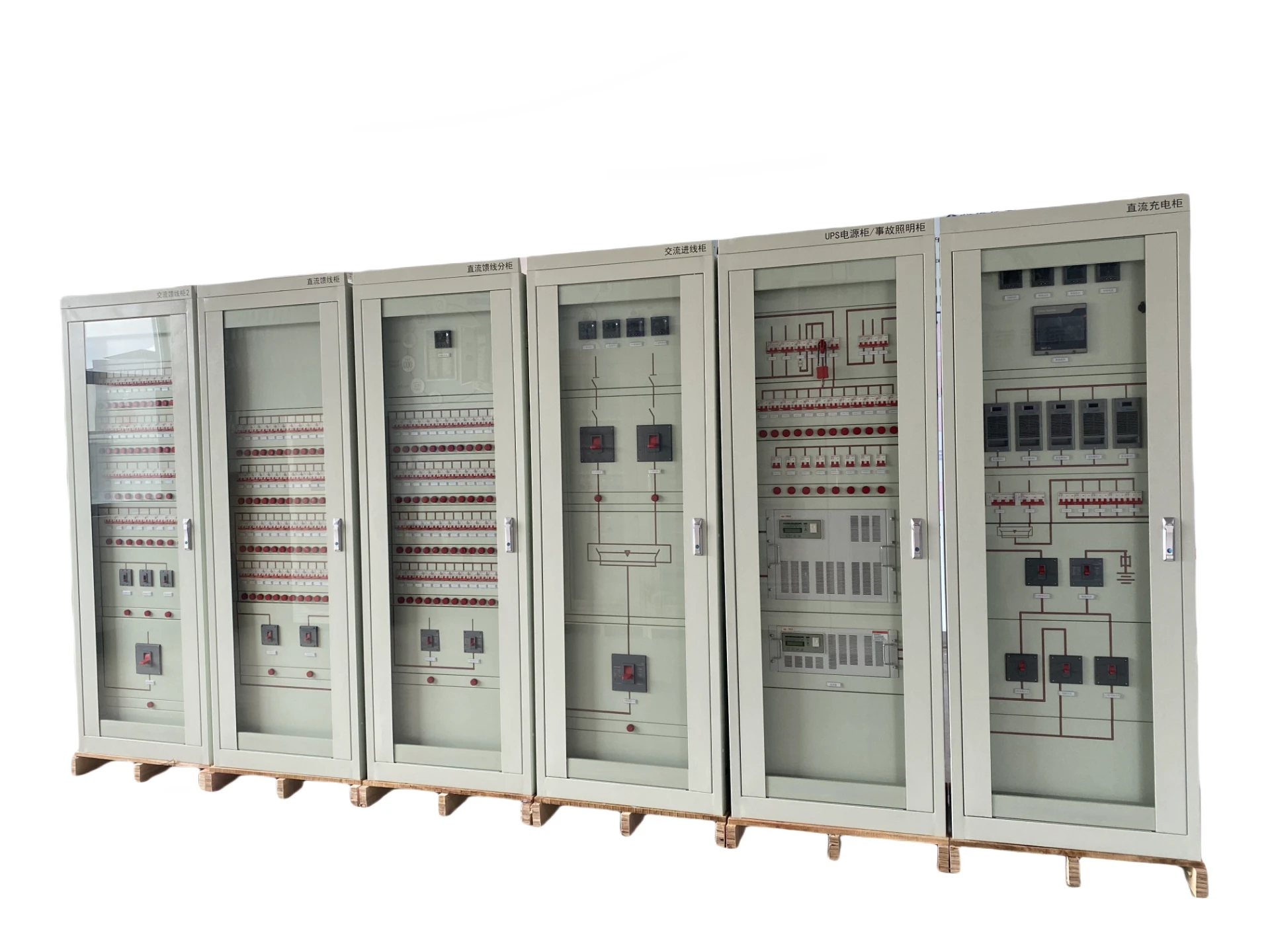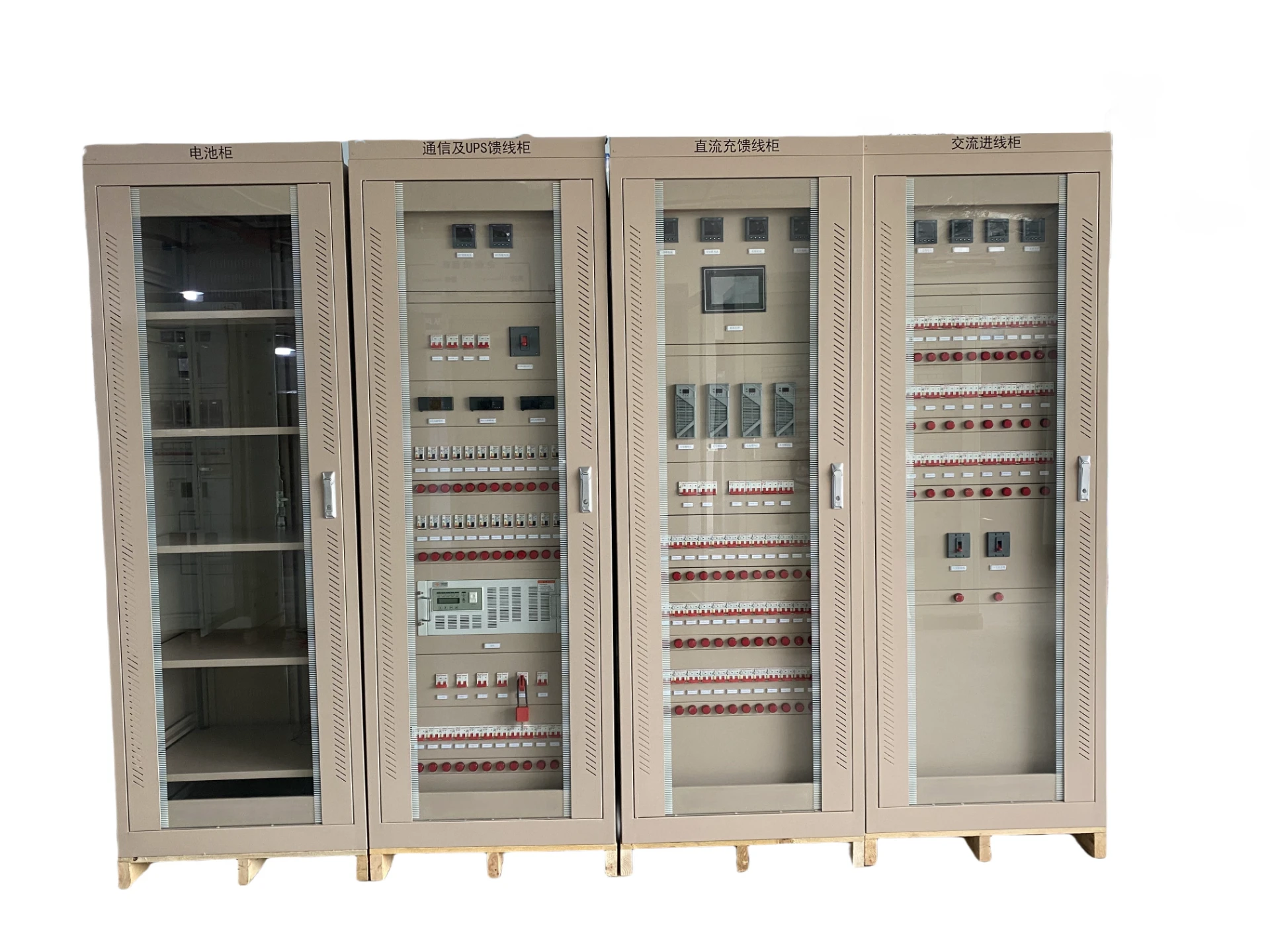
Juil . 23, 2025 03:01 Back to list
Intelligent Energy Management for Efficient Power Use at Home
Suzhou ACDC New Energy Technology Co., LTD., is a leading enterprise committed to the R&D, manufacturing, and global service of advanced intelligent energy management solutions. With a strong focus on innovation, ACDC delivers robust, scalable energy solutions including intelligent integrated power supply for homes, grids, and industries.
- Email: beika@acdctech.com.cn
- Phone: 008613285182182
- Address: No. 58 Tongxin Road, Tongan town, Suzhou, Jiangsu province, 215000
The global energy landscape is rapidly adopting digitalization and intelligence, powered by intelligent energy management (IEM) systems and solutions. These platforms redefine energy usage, integrate home energy storage systems, and ensure grid reliability for diverse applications. Drawing on the expertise and trust built by Suzhou ACDC New Energy Technology Co., LTD., this article explores industry trends, technical parameters, professional insights, advanced visualization, and enterprise integration to guide energy planners, engineers, and businesses.


Industry Trends: The Evolution of Intelligent Energy Management
In the context of carbon neutrality and electrification, intelligent energy management is at the heart of energy transformation. According to IEEE Journal, modern energy systems deploy real-time data, AI-driven analytics, and distributed architectures to achieve peak load management, higher resilience, and economic benefits.
- Integration of intelligent energy management system with smart grids and IoT sensors improves response time and grid reliability (source).
- The advancements in home energy storage systems increase household self-consumption, stabilize power supply, and enable renewable energy utilization at scale.
- Globally, the adoption growth rate of IEM exceeds 17% CAGR through 2025 (Mordor Intelligence).
- Policy incentives and ESG requirements are making intelligent energy management an imperative for commercial and industrial enterprises, driving demand for scalable and secure solutions.
Core Technology Parameters: Intelligent Energy Management
| Parameter | Typical Value / Range | Notes |
|---|---|---|
| Management Architecture | Distributed, Edge + Cloud | Ensures scalability and redundancy |
| Communication Protocols | Modbus, BACnet, TCP/IP, MQTT | For interoperability |
| Supported Inputs | Solar PV, Wind, Grid, Batteries, Thermal | Flexible energy source integration |
| Real-Time Data Latency | Crucial for load balancing, safety | |
| AI/ML Capabilities | Forecasting, Peak Shaving, Anomaly Detection | Optimizes operation and maintenance costs |
| Cybersecurity | 256-bit Encryption, Role-Based Access | Protects critical infrastructure |
| API Integration | RESTful, WebSocket | For third-party platforms, SCADA, EMS |
Application Scenarios of Intelligent Energy Management
- Smart Homes and Residential Buildings: Seamless integration with home energy storage systems to maximize solar self-consumption and cost savings.
- Commercial and Industrial Parks: Peak shaving, load shifting, and real-time energy optimization to reduce demand charges and emissions.
- T&D Grids and Utilities: Monitoring, prediction, and flexible dispatch of grid resources to maintain stability and resilience (IEEE PES).
- Microgrids and Off-grid Locations: Autonomous operation with renewables, batteries, and backup generators enabled by advanced intelligent energy management system.
- Data Centers: Intelligent orchestration for uptime, energy efficiency, and carbon footprint reduction.
- EV Charging Infrastructure: Smart load balancing and virtual plant integration to stabilize grid impacts.
Product Spotlight: Intelligent Integrated Power Supply
Model Description: ACDC LA-Lead Acid Batteries / LF-Lithium Iron Phosphate Battery
Core: Microcomputer-based DC Power Supply
Nominal Output Voltage / Current: 220V / 100A
Official Product Link: https://www.acdcbess.com/intelligent-integrated-power-supply.html
Key Technical Index Table
| Specification | Lead Acid Batteries | Lithium Iron Phosphate |
|---|---|---|
| Nominal Capacity (Ah) | 200 | 240 |
| Nominal Voltage (V) | 220 | 220 |
| Cycling Lifespan (Cycles) | 700 | >4000 |
| Energy Density (Wh/kg) | 32 | 120 |
| Charging Time (h) | 7-8 | 2-3 |
| Operation Temperature (℃) | -10 ~ +45 | -20 ~ +50 |
| Weight (kg) | 280 | 155 |
Professional FAQ On Technical Terms: Intelligent Energy Management System
A: The system supports both Lead Acid Batteries (LA) and Lithium Iron Phosphate (LiFePO4) technologies. LiFePO4 offers significantly higher cycle life and energy density for advanced applications (ScienceDirect).
A: The system leverages Modbus, BACnet, TCP/IP, and MQTT protocols for secure, reliable interoperability with building management, OT, and IoT devices.
A: Installation aligns with IEC 62485 (battery installations) and IEC 60364 (electrical installations), ensuring safety, longevity and reliable operation.
A: It integrates 256-bit AES encryption, multi-factor authentication, and secure device onboarding to safeguard critical infrastructure (Smart Energy International).
A: Higher energy density, especially in LiFePO4 cells (120 Wh/kg vs 32 Wh/kg for Lead Acid), yields lighter, more compact systems with the same usable energy, critical for residential and rooftop deployments.
A: Embedded microcomputers and edge processors ensure local millisecond-level response, remote monitoring, and AI-driven optimization for both grid-connected and off-grid modes.
A: Maintenance is minimal, thanks to the self-diagnosis, remote firmware upgrades, and long-life battery chemistries; annual inspections are recommended for safety and firmware updates.
EEAT Optimization: Trust, Authority, and Industry Recognition
The intelligent energy management market is shaped by innovative engineering, best practices, and globally recognized standards. As detailed in the Energy Storage Journal, validated case studies of intelligent integrated power supply demonstrate robust operation, long lifespan, and excellent cyber-physical performance.
- All of Suzhou ACDC New Energy Technology Co., LTD.,’s products undergo rigorous lab and field testing, surpassing IEC, UL, and GB safety and reliability standards.
- The enterprise participates in multiple industry forums, including CIGRE and IEEE PES, reinforcing product credibility and technical leadership (CIGRE).
- Energy planners, facility operators, and residential users benefit from transparent product documentation, full lifecycle management, and superior technical support.
Choosing Suzhou ACDC New Energy Technology Co., LTD., for Your Energy Future
Whether for upgrading commercial facilities with advanced intelligent energy management, or adding a reliable home energy storage system, ACDC offers solutions that meet the changing demands of the global energy landscape. Contact ACDC for system integration, technical consultation, or custom project development.
| Company | Website | Phone | Address | |
|---|---|---|---|---|
| Suzhou ACDC New Energy Technology Co., LTD., | acdcbess.com | beika@acdctech.com.cn | 008613285182182 | No. 58 Tongxin Road, Tongan town, Suzhou!Jiangsu province, 215000 |
References & Further Reading
- Smart Energy: How Intelligent Energy Management is Revolutionising the IoT Industry
- IEEE Xplore: Intelligent Energy Management Systems and AI Integration
- Mordor Intelligence: Energy Management Systems Market - Industry Analysis
- ScienceDirect: Battery Technology Evolution for Intelligent Energy Management
- Official Product Link: Intelligent Integrated Power Supply
- IEEE PES: Intelligent Energy Management for Grids
- CIGRE: Global Energy Engineering Authority
This is the last article
-
Intelligent Energy Management for Efficient Power Use at Home
NewsJul.23,2025
-
Advanced Energy Management System EMS OEM Solutions
NewsJul.22,2025
-
Efficient Energy Management System: Optimize Savings & Monitoring
NewsJul.21,2025
-
Reliable ESS Energy Storage Solutions | Efficient Power Backup
NewsJul.21,2025
-
Self-Cooling-PW-164: Advanced Automatic Cooling Motor Technology
NewsJul.20,2025
-
Energy Management System Optimize Energy Use & Save Costs
NewsJul.20,2025























